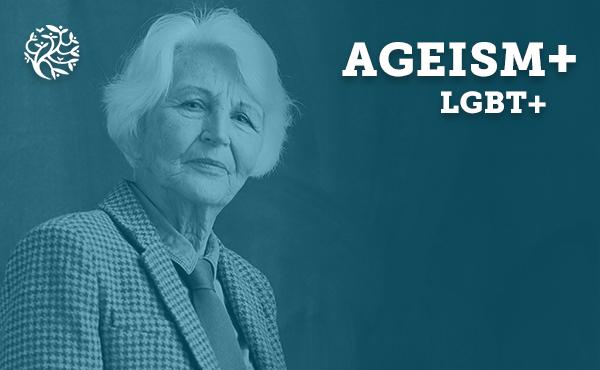The Purple List: a gay dementia venture
A diagnosis of dementia can be isolating, lonely and scary for anyone, but when most of the literature and information you are given shows heterosexual couples holding hands, and supporting each other, a member of the LGBTQ community can feel even further alienated and remote from the genuine support that is out there.
Afraid to ask for care
We are not talking enough about the potential impact of dementia on members of the LGBTQ community – some of whom may be afraid to ask for care and advice for fear of prejudice and maltreatment or just being treated differently.
Many older LGBTQ people have lived half their lives with the threat of criminal proceedings for homosexuality hanging over them, and many have undergone violence and discrimination purely on the grounds of their sexuality.
Living with a memory-restricting disease can cause all kinds of complications and confusion for LGBTQ people, including some choosing to go back into the closet, not recalling coming out at all, or considering “de-gaying” their own homes before allowing carers to come in.
Representation is vital
Older LGBTQ individuals are more likely to live alone than older heterosexual people and thus suffer even more from social isolation, especially at a time in their lives when they most need help and care. Yet, we still see or hear very little representation of LGBTQ people living with dementia in the media or in dementia care literature.
Society is just not pushing this issue to the fore and it’s time to put a stop to that. Authorities, social care organisations and homes need to address the issue that they do have LGBTQ people in their care and therefore need to be represented.
Care managers need to consider their staff training to reflect all aspects of their clients’ backgrounds and be willing to have discussions about sexuality and indeed sex.
Our story of navigating care
Seeing more representation of LGBT dementia care patients and carers is vital: 'The Purple List… a gay dementia venture' is a 35 minute, one-man play doing just that. The play is presented from a carer’s point of view and tells the story of a male gay couple living with a dementia diagnosis. We see them navigate their way through the various care systems and how they experience both poor and excellent care, largely due to the levels of diversity training and awareness staff have received.
The play is followed with a Q&A session with the actor, Ian Baxter, in role then out of role and joined by the playwright, Libby Pearson.
The play, while a stand-alone piece of theatre in its own right, is being used as a training tool for a wide-range of organisations including care commissioners, care trainers, managers and staff, medical and social work students.
Meaningful discussions about dementia are really just beginning. An approach to tackle the issues surrounding dementia in the LGBTQ community is overdue and must begin now.
If you want to know more about, or book a performance, go to purplelisttheatre.co.uk email: info@purplelisttheatre.co.uk or call 07527640358
Have you been affected by these issues?
If you have been affected by any of the issues described in this blog, or simply need someone to reach out to, you can contact Switchboard, the LGBT+ helpline on 0300 330 0630 10am-10pm every day, or by email at chris@switchboard.lgbt
The views and opinions expressed in this article are those of the author and do not necessarily reflect the policy or position of Independent Age.
